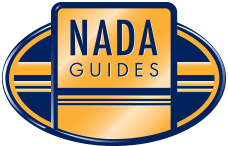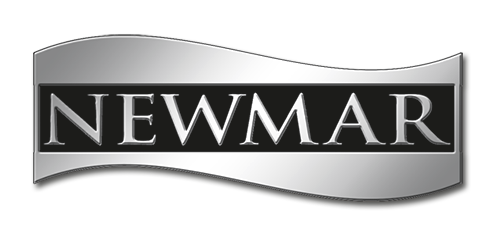How Do RV Loans Work?
When you are considering purchasing a camper or RV, you may not have the full amount of cash upfront. In such cases, an RV loan can help you finance your dream vehicle. An RV loan is a type of loan specifically designed for purchasing recreational vehicles.
RV loans work similarly to other types of loans. You borrow a specific amount of money, usually based on the purchase price of the RV, and repay it over a set period of time. The loan is secured by the RV itself, meaning that the vehicle serves as collateral. This allows lenders to offer lower interest rates compared to unsecured loans.
The interest rates for RV loans vary depending on factors such as your credit score, the loan term, and the loan amount. Generally, borrowers with higher credit scores are eligible for lower interest rates. It's important to shop around and compare offers from different lenders to find the best RV loan rates.
How to Choose the Best RV Loan?
Choosing the best RV loan requires careful consideration of various factors. Firstly, you need to qualify for an RV loan. Lenders typically look at your credit score, income, and debt-to-income ratio to determine your eligibility for a loan.
When exploring financing options for RV loans, you have choices such as personal loans, auto loans, and specialized RV loans. Credit unions are known to offer competitive rates for RV financing, so it's worth checking with them. Make sure to compare interest rates, loan terms, and any additional fees or charges before making a decision.
To apply for an RV loan, you can contact lenders directly or use online platforms that connect borrowers with lenders. Complete the application process by providing the necessary documents, such as income verification and personal identification.
What Is an Unsecured RV Loan?
An unsecured RV loan is a type of loan that is not backed by collateral. Unlike secured RV loans, where the RV itself serves as collateral, unsecured RV loans rely solely on the borrower's creditworthiness.
Unsecured RV loans work similarly to other unsecured loans. Lenders assess your credit score, income, and debt-to-income ratio to determine your eligibility and interest rate. If approved, you will receive a loan amount that can be used to finance the purchase of an RV.
One advantage of an unsecured RV loan is that you are not putting your RV at risk of repossession, as there is no collateral involved. However, unsecured loans typically have higher interest rates compared to secured loans, as the lender has no asset to back the loan. Additionally, securing an unsecured RV loan may require a higher credit score.
Is a Secured RV Loan a Better Option?
A secured RV loan is a better option for many borrowers due to its advantages. A secured RV loan is backed by collateral, which is the RV itself in this case. By providing collateral, you reduce the risk for the lender and, as a result, enjoy lower interest rates.
Secured RV loans differ from unsecured RV loans primarily because of the collateral. If you fail to repay the loan as agreed, the lender can take possession of the RV to recover their losses. This provides a layer of security for the lender, making secured loans less risky and therefore more favorable in terms of interest rates.
In addition to lower interest rates, secured RV loans offer other benefits. They often come with longer loan terms, facilitating lower monthly payments. This allows borrowers to finance the purchase of more expensive RVs while staying within their budget. It's important to carefully consider your financial situation and weigh the advantages and potential risks before opting for a secured RV loan.
Where to Find the Best RV Loan Rates and Terms?
When it comes to finding the best RV loan rates and terms, it's important to shop around and compare offers from multiple lenders. Some lenders specialize in RV financing and offer favorable rates for borrowers.
Credit unions are often a good place to start, as they tend to offer competitive rates for RV loans. Additionally, banks, online lenders, and RV dealerships also offer financing options. It's recommended to get pre-approved before visiting an RV dealership, as it allows you to negotiate from a position of strength.
RV loan rates and terms can vary based on factors such as your credit score, loan amount, and the type of loan you choose. Generally, loans with longer terms may have higher interest rates, so it's important to carefully consider the impact on your overall financial situation.
If you have an existing RV, you may also have the option to use it as collateral for a loan. This can potentially help you secure a larger loan amount or enjoy more favorable terms.
Conclusion
In conclusion, when you're ready to embark on your journey with a camper or RV but don't have the entire purchase amount upfront, RV loans can be your ticket to making that dream a reality.
RV loans work much like other types of loans. You borrow a specific amount, typically based on the RV's price, and pay it back over an agreed-upon period. The RV itself acts as collateral, which often results in lower interest rates compared to unsecured loans.
To select the best RV loan, consider your eligibility by evaluating factors like your credit score, income, and debt-to-income ratio. Explore financing options, including personal loans, auto loans, and specialized RV loans. Credit unions often provide competitive rates for RV financing. Be sure to compare interest rates, terms, and any additional fees.
Unsecured RV loans, though without collateral, generally come with higher interest rates, demanding a stronger credit score. Secured RV loans, backed by the RV itself, usually offer lower rates and longer terms, making them favorable for many borrowers. However, it's essential to weigh the advantages and risks before committing.
Shop around to find the best RV loan rates and terms. Credit unions, banks, online lenders, and RV dealerships all offer financing options. Pre-approval can be a powerful tool when negotiating with RV dealerships.
Remember, the choice between secured and unsecured RV loans should align with your financial situation and aspirations. With careful consideration and informed decisions, you can set forth on your RV adventure with confidence.
FAQs
Q: How can I get an RV loan?
A: To get an RV loan, you can approach various lenders who offer RV loans. They will assess your creditworthiness, income, and other factors to determine if you qualify for a loan.
Q: What are the financing options available for RVs?
A: There are several financing options available for RVs, including traditional banks, credit unions, online lenders, and RV dealerships. Each option may have different terms and interest rates, so it's advisable to explore all the available options.
Q: How do I qualify for an RV loan?
A: To qualify for an RV loan, you typically need to have a good credit score, a stable income, and a down payment. Lenders may also consider the type and age of the RV you want to finance.
Q: Can I use the RV I want to buy as collateral for the loan?
A: Yes, many lenders offer RV loans where the RV itself serves as collateral. This type of loan is known as a secured loan, and it provides the lender with security in case of default.
Q: What is the loan term for RV loans?
A: The loan term for RV loans can vary depending on the lender and your financial situation. Generally, RV loans have terms ranging from 5 to 20 years.
Q: How can I improve my credit score to get better RV loan terms?
A: To improve your credit score, you can pay your bills on time, reduce your debt-to-income ratio, and avoid applying for new credit. It's also recommended to check your credit score regularly and dispute any errors you find.
Q: What factors determine the interest rate for an RV loan?
A: The interest rate for an RV loan is determined by factors such as your credit score, loan term, down payment, and the lender's policies. Generally, a higher credit score and a larger down payment can help you secure a lower interest rate.
Q: How much RV can I afford?
A: To determine how much RV you can afford, you should consider your monthly budget, including expenses such as loan payments, insurance, fuel, and maintenance. Using an RV loan calculator can also help you estimate a comfortable loan amount.
Q: Can I finance both new and used RVs?
A: Yes, you can finance both new and used RVs. However, the terms and interest rates may vary between new and used RV loans. It's advisable to compare the available options before making a decision.
Q: What are the risks associated with an RV loan?
A: One of the risks associated with an RV loan is the potential for repossession. If you default on the loan, the lender can seize the RV as collateral. Additionally, if the RV depreciates in value over time, you may owe more on the loan than the RV is worth.








